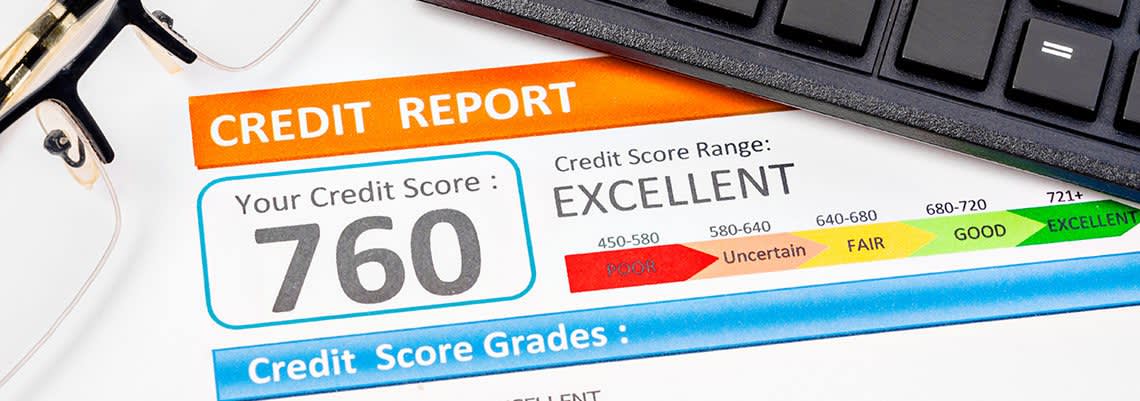
HOW LONG DOES BANKRUPTCY SHOW ON YOUR CREDIT REPORT?
It is true that a Chapter 7 or Chapter 13 bankruptcy will appear on your credit report for years, but that does not necessarily mean filing for bankruptcy is the wrong choice. It could be the only way you can get back on firm financial footing when you are struggling with debt.
In the 12 months leading up to March 31, 2020, the state of Georgia had the highest number of individuals filing for Chapter 13 bankruptcy (24,449) in the nation. That was more than twice the number filed in California or New York during the same period. Despite the damage bankruptcy would do to their credit ratings, thousands of people decided it was the best way to get back on their feet financially.
If you are thinking about filing for bankruptcy, or if you have already filed and wonder how it will affect your future, you should talk to an experienced bankruptcy attorney.
At Pytte Law, I help clients in Savannah and Hinesville, Georgia, and the surrounding towns and counties consider their options. I provide answers about the long-term impact of bankruptcy and help people like you decide if it’s is right for you.
Chapter 7 Bankruptcy
Chapter 7 bankruptcy discharges nearly all unsecured debt, such as credit cards, unsecured loans, and medical debt. Some debt, such as child support, student loans, and any debt you failed to include in your filing, will not be discharged. It can also discharge some secured debt, such as your auto loan or mortgage. Bear in mind that your car or home could be repossessed by the lender who holds the debt, if you are not current and up to date with your payments or have more equity in a property than allowed.
People with below-median incomes can file for Chapter 7 bankruptcy. The bankruptcy remains on your credit report for 10 years.
Chapter 13 Bankruptcy
If your income exceeds the median income in Georgia, you can file for Chapter 13 bankruptcy. In Chapter 13, you agree to repay at least some of the debt you owe over a three- to five-year period. Since debt is not discharged, you can keep your home or auto because you continue to make payments on the debt.
If you make payments according to the plan, the debt will remain on your credit report for up to seven years.
How Much Does Bankruptcy Affect Credit Score?
Sixty-five percent of credit scores are based on two key factors. Payment history is the most important, comprising 35% of your score. This includes whether or not you have made timely payments on your debt, such as mortgage payments, credit card payments, and payments on installment loans.
The second key factor is credit utilization, also called a debt-to-credit ratio. While having a lot of credit available to you is a good thing, you should be using only 30% or less of it at any one time. That is difficult for people who have maxed out credit cards and can only make minimum monthly payments.
With these two factors comprising so much of your credit score, you can see that discharging or restructuring all or part of your debt through bankruptcy would ruin it until you manage to somehow rebuild your credit.
What Can You Do to Help?
There are three steps you can take to restore your credit score and make sure it’s accurate.
First, start rebuilding credit by obtaining a secured credit card. Unlike a typical credit card, a secured credit card requires you to deposit a certain amount of money into an account. That amount of money then becomes the spending limit on the card. Use it for small purchases that you can pay for out of your checking account and pay off the entire balance every month.
Second, check to make sure only the applicable accounts were reported. Only the debt that was discharged through bankruptcy should appear as such on your credit report. If you are still paying on some debts that appear on your report, notify the credit reporting agency to correct the error.
Finally, once the seven or 10 years have passed, check to make sure the bankruptcy no longer appears on your credit report. If it does, you again need to notify the reporting agency to correct the information.
How Pytte Law Can Help
You should be concerned about how filing for bankruptcy will affect your credit rating and for how long. Of course, if you are struggling with debt, your credit score will undoubtedly reflect that already.
At Pytte Law, I have helped hundreds of clients in Savannah, Hinesville, Statesboro, Richmond Hill, and Ludowici, Georgia, and in Chatham, Liberty, Bryan, Effingham, and Long counties make tough decisions about filing for Chapter 7 and Chapter 13 bankruptcy. I also answer their questions about rebuilding their credit and raising their credit score after they file. Call me at Pytte Law today to schedule a free consultation. It might be the first step toward starting over.